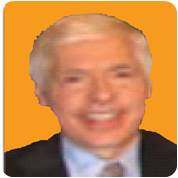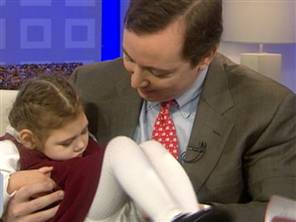Brain & Health Interview Series
Since 2006, as part of the research supporting The SharpBrains Guide to Brain Fitness and SharpBrains’ market reports, we have interviewed dozens of leading-edge scientists and experts. Below are some of our favorite interviews and quotes:
| “…putting good evidence to work in practice requires more than publishing good research. I’d say that scientific evidence is directly relevant to perhaps 15% of clinical decisions…we require technologies that translate emergent knowledge into practice.” — Dr. John Docherty, Adjunct Professor of Psychiatry at Weill Medical College, and former Branch Chief at NIMH. Full Interview Notes. |
|
| “We should be thinking about the brain through its whole lifetime…We need to break the silos, to aggregate knowledge, to help advance our knowledge of the brain 50 years in 5 years.” — Patrick Donohue, founder of the Sarah Jane Brain Project. Full Interview Notes. |
|
| “My dream in all of this is to have standardized and credible tools to train the 5–6 main neurocognitive domains for cogni tive health and performance through life, coupled with the right assessments to identify one’s individ ual needs and mea sure progress” — Dr. Michael Merzenich, Emeritus Professor at UCSF, and pioneer in brain plasticity research. Full Interview Notes. |
|
| “We have an opportunity to make major progress in Brain Health in the XXI century, similar to what happened with Cardiovascular Health in the XX, and technology will play a crucial role.” — Dr. William E. Reichman, President and CEO of Baycrest. Full Interview Notes. |
|
| “Growth only really comes at the point of resistance, but that is the moment that we tend to stop. Because it hurts…pushing our limits is a muscle that can be cultivated like any other–incrementally” — Joshua Waitzkin, chess champion and author of The Art of Learning. Full Interview Notes. |
|
| “The correlation between identical twins reared apart gives an overestimate of heritability because the environments of iden tical twins reared apart are often highly similar. But the main contradiction of heritability estimates lies in the fact that adoption produces a huge effect on IQ” ‑Dr. Richard Nisbett, Professor at University of Michigan and author of Intelligence and How to Get It: Why Schools and Cultures Count. Full Interview Notes. |
|
 |
“Let me add that we have found no ceiling for abilities such as attention, including among adults. The more training, even with normal people, the higher the results.” — Dr. Michael Posner, prominent cognitive neuroscientist, Emeritus Professor at the University of Oregon, and first recipient of the Dogan Prize. Full Interview Notes. |
 |
“There is much more optimism and hope today than only a few years ago about how many traumatic brain injury patients can improve, if given the opportunity to, through a supportive environment and physical and cognitive therapy.” — Lee Woodruff, co-author of In An Instant with husband, reporter and TBI survivor Bob Woodruff. Full Interview Notes. |
 |
“Ideally, combine both physical and mental stimulation along with social interactions. Why not take a good walk with friends to discuss a book? We lead very busy lives, so the more integrated and interesting activities are, the more likely we will do them.” — Dr. Arthur Kramer, Professor of Psychology and Director of the Biomedical Imaging Center at the University of Illinois. Full Interview Notes. |
 |
“(What surprised us the most was) the clear transfer into fluid intelligence, which many researchers and psychologists take as fixed. Second, I was surprised to see that the more training the better the outcome. The improvements did not seem to peak early. Third, that all trained groups improved, no matter their respective starting points”. — Dr. Martin Buschkuehl, Researcher at University of Michigan. Full Interview Notes. |
 |
“Parenting, mentoring, teaching, and mass media are examples of the cultural systems that humans have developed to help young people master the knowledge and skills they need to survive and thrive in complex environments.” — Dr. Robert Sylwester, author of The Adolescent Brain: Reaching for Autonomy and Emeritus Professor of Education at the University of Oregon Full Interview Notes. |
|
|
“I would say that a crossword puzzle is not a form of cognitive training. It can be stimulating, but it is not a form of structured mental exercise that has been shown to improve specific cognitive skills.” — Dr. Jerri Edwards, Associate Professor at University of South Florida’s School of Aging Studies and Co-Investigator of the influential ACTIVE study. Full Interview Notes. |
 |
“It seems clear that there are important skills that can be trained, that make for a better and more successful human being — such as the ability to defer gratification, sequencing, emotional intelligence, improved working memory, vocabulary, and processing skills. However, the type of assessments used today to measure schools’ performance don’t focus on these.” ‑Eric Jensen, founder of Learning Brain Expo. Full Interview Notes. |
 |
“Today, thanks to fMRI and other neuroimaging techniques, we are starting to understand the impact our actions can have on specific parts of the brain.”- Dr. Judith S. Beck, Director of the Beck Institute for Cognitive Therapy and Research, and author of The Beck Diet Solution: Train Your Brain to Think Like a Thin Person. Full Interview Notes. |
 |
“Individuals who lead mentally stimulating lives, through education, occupation and leisure activities, have reduced risk of developing Alzheimer’s symptoms. Studies suggest that they have 35–40% less risk of manifesting the disease”- Dr. Yaakov Stern, Division Leader of the Cognitive Neuroscience Division of the Sergievsky Center at the College of Physicians and Surgeons of Columbia University, New York. Full Interview Notes. |
 |
“Training is very important: attentional control is one of the last cognitive abilities to develop in normal brain development…I can easily see the relevance in 2 fields. One, professional sports. Two, military training.” Professor Bradley Gibson is the Director of the Perception and Attention Lab at University of Notre Dame. Full Interview Notes. |
 |
“The practice of gratitude can increase happiness levels by around 25%, and this is not hard to achieve — a few hours writing a gratitude journal over 3 weeks can create an effect that lasts 6 months if not more.” — Professor Robert Emmons, Editor-In-Chief of the Journal of Positive Psychology and Professor of Psychology at UC Davis. Full Interview Notes. |
 |
“I don’t see that schools are applying the best knowledge of how minds work. Schools should be the best place for applied neuroscience, taking the latest advances in cognitive research and applying it to the job of educating minds.” — Dr. Arthur Lavin, Associate Clinical Professor of Pediatrics at Case Western School of Medicine, pediatrician in private practice. Full Interview Notes. |
 |
“What was very surprising was that there was also a clear benefit in auditory memory, which wasn’t directly trained. In other words, people who were 75-years-old performed auditory memory tasks as well as average 65-year-olds, so we can say they reversed 10 years of aging for that cognitive ability.” — Dr. Liz Zelinski, Professor of Psychology at the University of Southern California Andrus Gerontology Center. Full Interview Notes. |
 |
“Learning is physical. Learning means the modification, growth, and pruning of our neurons, connections–called synapses– and neuronal networks, through experience…When we do so, we are cultivating our own neuronal networks. We become our own gardeners”- Dr. James Zull, Professor of Biology and Biochemistry at Case Western University. Full Interview Notes. |
 |
“Exercising our brains systematically is as important as exercising our bodies. In my experience, “Use it or lose it” should really be “Use it and get more of it”.- Dr. Elkhonon Goldberg, neuropsychologist, clinical professor of neurology at New York University School of Medicine, and disciple of the great neuropsychologist Alexander Luria. Full Interview Notes. |
|
|
“What research has shown is that cognition, or what we call thinking and performance, is really a set of skills that we can train systematically. And that computer-based cognitive trainers or “cognitive simulations” are the most effective and efficient way to do so.” — Dr. Daniel Gopher, Director of the Research Center for Work Safety and Human Engineering at Technion Institute of Science. Full Interview Notes. |
|
|
“It is hardly deniable that brains enchant Japanese people. We love brain training. Dentsu, the biggest advertising agency, announced the No.1 Consumer-chosen 2006 Product was game software and books for brain training.”- Go Hirano, Japanese executive, founder of NeuWell. Full Interview Notes. |
 |
“Elite performers are distinguished by the structuring of their learning process… It is important to understand the role of emotions: they are not “bad”. They are very useful signals. It is important to become aware of them to avoid being engulfed by them, and learn how to manage them.” — Dr. Brett Steenbarger, Associate Professor of Psychiatry and Behavioral Sciences, SUNY Medical University, and author of Enhancing Trader Performance. Full Interview Notes. |
 |
“We have shown that working memory can be improved by training…I think that we are seeing the beginning of a new era of computerized training for a wide range of applications” – Dr. Torkel Klingberg, Director of the Developmental Cognitive Neuroscience Lab at Karolinska Institute. Full Interview Notes. |
 |
“Cognitive training rests on solid premises, and some programs already have very promising research results. Some of the most are promising areas are: neurofeedback, which as a whole is starting to present good research results, and working memory training.” — Professor David Rabiner, Senior Research Scientist and the Director of Psychology and Neuroscience Undergraduate Studies at Duke University. Full Interview Notes. |






